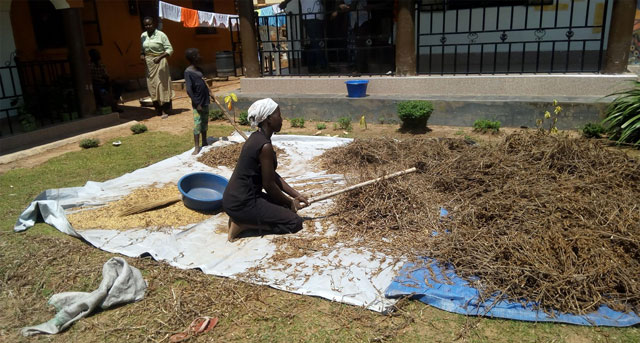
Gulu, Uganda | THE INDEPENDENT | Agricultural extension workers in Northern Uganda have formed a coalition for improving access to extension services in the region.
The coalition named Northern Uganda Agricultural Extension Platform is aimed at closing the gaps of the extension services in the region.
At least 31 Districts in the Lango, Acholi and West Nile Region among other Institutions that include Gulu University, Muni University Uganda and Martyrs University are members of the coalition.
Ruth Mugisha, the Regional Coordinator Uganda Forum for Agricultural Advisory says most of the farmers still do not know how to cope up with climate change to realize good yields. She says that such risk can be mitigated when extension services are fully provided to the farmers.
“We have different agrological zones but most farmers still lack knowledge on the enterprise selection on the particular crops to grow which should be our primary focus in the next five years” Mugisha noted.
Jimmy Andio, the Program Manager Adraa Agriculture College, says that the Northern region can potentially develop if farmers get the skills and knowledge for the best practices in farming.
Albert Unzi, the Agricultural Officer for Obongi District however noted that the District is operating with only five extension workers which he says is affecting the extension services in the District.
However, according to Walter Odong, a Lecturer at Gulu University in the Faculty of Agriculture, there is a need for research on the factors affecting productivity in the Country.
He asked the government to recruit more extension workers in the Country to close the gaps of the extension services if farming is to increase household income to address poverty.
Comfort Yikiru, the Program Manager of Rural Initiative for Community Empowerment, the farmers led Organization in the West Nile Region says the disconnect between the farmers and the extension workers is hurting the long term vision of the Country of sustainable development.
The government introduced reform in the agricultural extension services six years ago through a single spine extension system to enhance agricultural production, value addition and food security.
However, the understaffing of the extension workers and inadequate funds in the agricultural sector are among the factors reportedly frustrating the efforts.
The Ministry of Agriculture, Animal Industry and Fisheries has approved for the ceiling of 5,000 extension workers but only 3,854 of them were recruited by 2019.
At least 1 extension worker is currently handling 1,800 farmers with the uptake of optimal utilization of technologies in the Country remaining low at 28% with 68% of the households are still trapped in subsistence farming.
Romeo Okot, a local farmer in Lalogi Sub County from Omoro District says he has faced challenges of price fluctuation and drastic weather for the five years in farming.
“We were told that a kilogram of cotton was at 3,000 but they ended up selling at 1,300 shillings but the worst I suffered last year was the heavy rain that destroyed 2 hectares of my cotton” Okot recounts.
Okot has however abandoned growing the cotton and switched to soybeans where he planted 2 hectares this year and hopes to get a better outcome and the market.
*******
URN
 The Independent Uganda: You get the Truth we Pay the Price
The Independent Uganda: You get the Truth we Pay the Price





